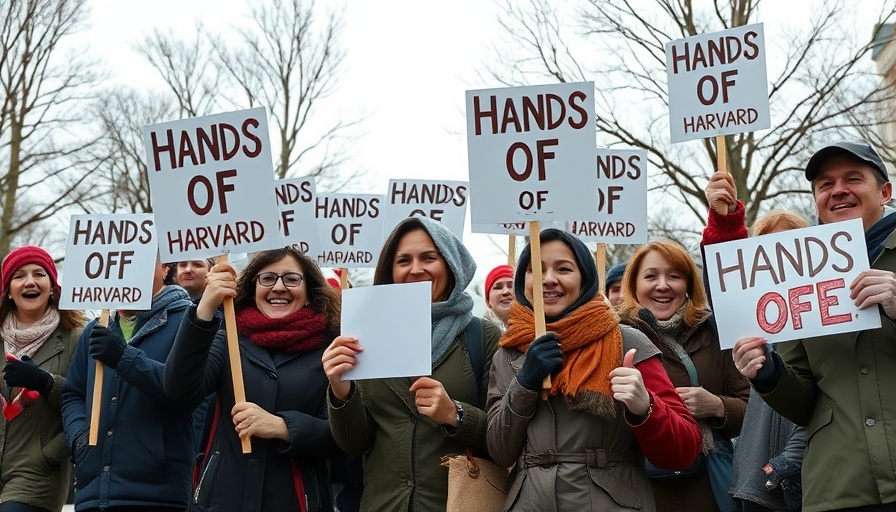
Harvard's Controversial Stance on Anti-Semitism and Funding
In recent years, Harvard University has faced mounting scrutiny regarding its handling of anti-Semitism on campus. Despite pressure from various advocacy groups, including members of the Trump administration, Harvard's leadership has steadfastly refused to alter its approach. Critics argue that while the university claims a commitment to academic freedom, it effectively enables an environment where hostility towards Jewish students can flourish. This raises a pivotal question: should taxpayers finance an institution that appears to disregard civil rights, particularly those of its Jewish community?
The Legal Framework: Title VI of the Civil Rights Act
As it stands, Title VI of the Civil Rights Act of 1964 prohibits discrimination in federally funded programs and activities. In light of this, Harvard's apparent indifference to the alarming rise in anti-Semitism on its campus is problematic. Critics assert that if the university continues to turn a blind eye to such behavior, it should no longer receive federal funding. With estimates suggesting that Harvard benefits from nearly $9 billion in federal aid annually, there is growing momentum for reevaluating this financial relationship.
Cultural and Ideological Influence on Campus
The ideological landscape at Harvard is predominantly left-leaning, which significantly shapes the discourse around race and identity. Many argue this perspective fosters a culture that is dismissive of Jewish concerns while quickly elevating grievances from other minority groups. Such double standards create an environment where Jewish students feel vulnerable and marginalized. If the institution truly champions diversity and inclusion, it must extend those values to all students, irrespective of their ethnic or religious background.
The Financial Argument: Endowment vs. Federal Support
Harvard's endowment, estimated to be over $50 billion, raises questions about its reliance on taxpayer funding. Critics suggest that if Harvard is unwilling to address civil rights violations within its own walls, it should sustain itself without federal funds. This sentiment reflects the views of many taxpayers, who are growing increasingly resistant to subsidizing any institution that fails to uphold civil rights endeavors.
Future Predictions: Trends in Funding and Accountability
The landscape of university funding is rapidly changing. As public awareness regarding institutional accountability grows, we can expect more legislative scrutiny aimed at universities, particularly those tackling issues of discrimination and civil rights violations. If universities like Harvard continue to face backlash for their policies—or lack thereof—they might find themselves under increasing pressure to choose between ideological purity and financial viability.
Engaging in the Debate: What’s Next for Harvard?
There’s an urgent need for open dialogue about how universities handle issues of discrimination and bias on their campuses. For Harvard, the path forward involves reevaluating its policies to ensure that it genuinely protects all students. Advocates for change will need to mobilize effectively, surrounding the topic with support from alumni, stakeholders, and students. Only through serious examination and discussion can Harvard hope to regain the trust of its community.
At the heart of this debate lies an essential truth: a university's commitment to academic freedom cannot come at the price of its students' safety and dignity. Together, let's advocate for a Harvard that respects every student's right to a safe educational environment. With growing national attention on these issues, now more than ever is the time for action.
 Add Element
Add Element  Add Row
Add Row 



 Add Row
Add Row  Add
Add 


Write A Comment